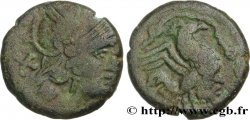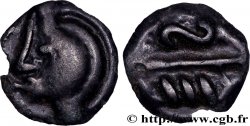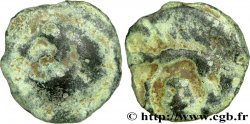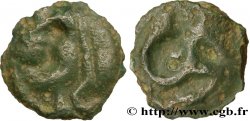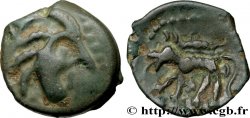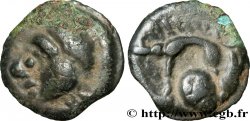E-auction 95-49443 - bga_240033 - GALLIA BELGICA - BELLOVACI (Area of Beauvais) Bronze au coq, “type de Bracquemont”
You must signin and be an approved bidder to bid, LOGIN TO BID. Accounts are subject to approval and the approval process takes place within 48 hours. Do not wait until the day a sale closes to register. Clicking on « bid » constitutes acceptance of the terms of use of cgb.fr private e-auctions.
Bids must be placed in whole Euro amounts only. The sale will start closing at the time stated on the item description; any bids received at the site after the closing time will not be executed. Transmission times may vary and bids could be rejected if you wait until the last second. For further information ckeck the E-auctions F.A.Q.
NO BUYER'S FEE.
NO BUYER'S FEE.
| Estimate : | 55 € |
| Price : | 19 € |
| Maximum bid : | 19 € |
| End of the sale : | 09 February 2015 15:11:30 |
| bidders : | 5 bidders |
Type : Bronze au coq, “type de Bracquemont”
Date: c. 50-25 AC.
Mint name / Town : Beauvais (60)
Metal : bronze
Diameter : 14,5 mm
Orientation dies : 1 h.
Weight : 2,19 g.
Rarity : R1
Coments on the condition:
Flan un peu court, avec les types centrés et complets, mais de frappe molle et/ou usés. Patine verte et granuleuse
Predigree :
Cet exemplaire provient de la collection M. G
Obverse
Obverse legend : ANÉPIGRAPHE.
Obverse description : Tête casquée de Rome à droite ; derrière, X.
Reverse
Reverse legend : ANÉPIGRAPHE.
Reverse description : Coq debout à droite, le corps formé d'une tête humaine barbue ; devant et derrière le coq, motif serpentiforme, centré d’un annelet.
Commentary
Le type a parfois été mal classé et interprété. Le dessin du Lambert (pl. 7, n° 35) est repris dans le Traité de Numismatique gauloise d’A. Blanchet en 1905 (fig. 39). S. Scheers ne signalait pas qu’un exemplaire de ce type soit conservé au Cabinet des médailles en 1977 tandis que, trois ans plus tard dans son article (RN. 1980, p. 44), elle renvoyait au numéro 7227 pour ce type. Dans leur inventaire de 1889, Muret et Chabouillet n’avaient pas distingué le masque humain qui orne le poitrail du coq. Ce type est aujourd’hui mieux connu grâce aux travaux de L.-P. Delestrée.







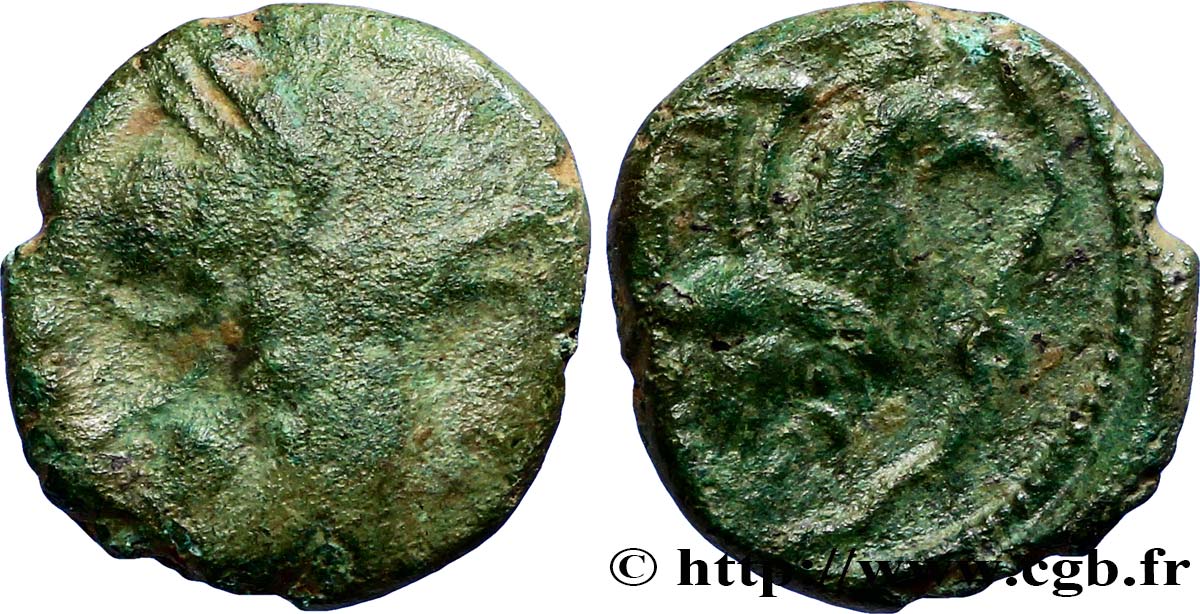
 Report a mistake
Report a mistake Print the page
Print the page Share my selection
Share my selection Ask a question
Ask a question Consign / sell
Consign / sell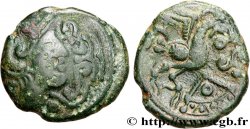
 Full data
Full data